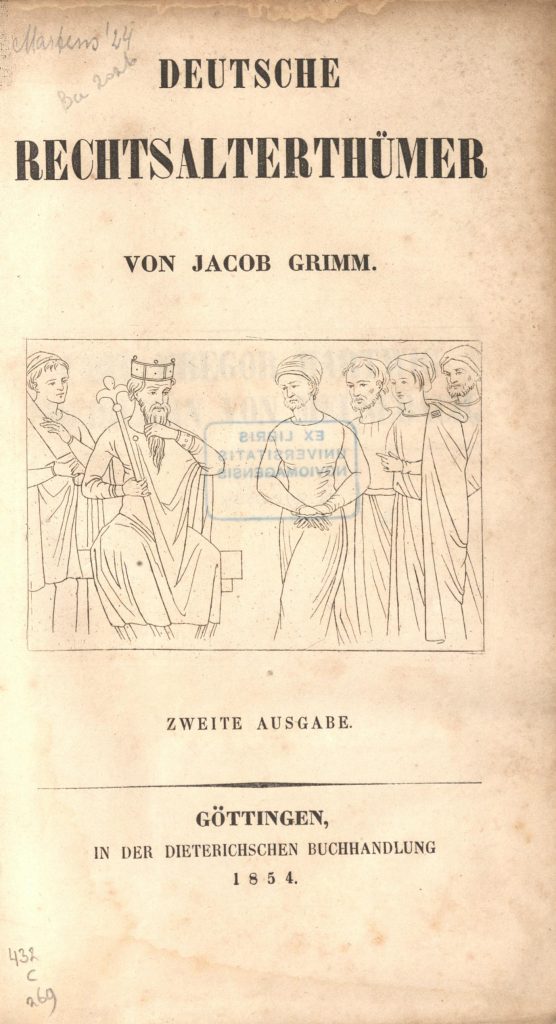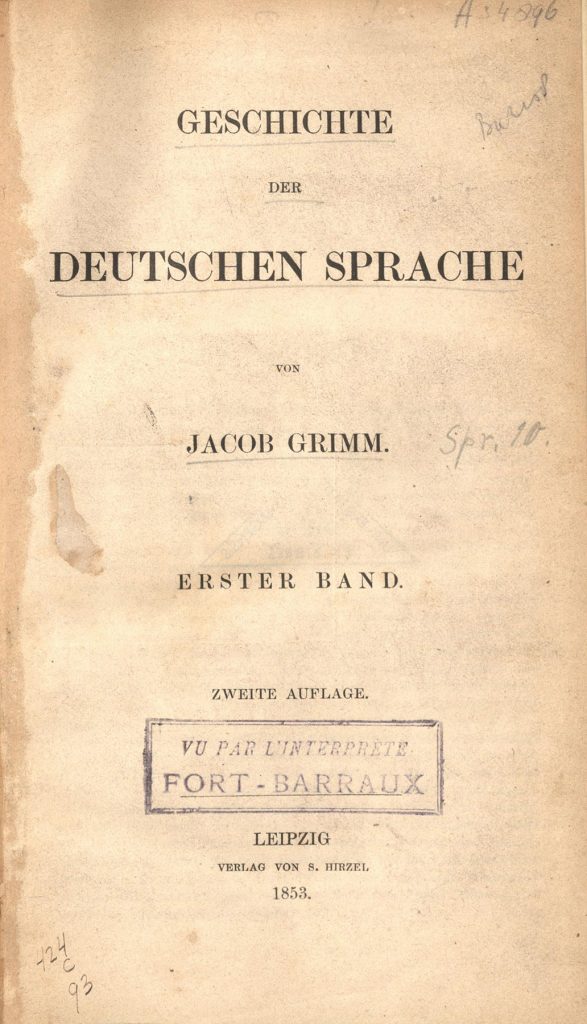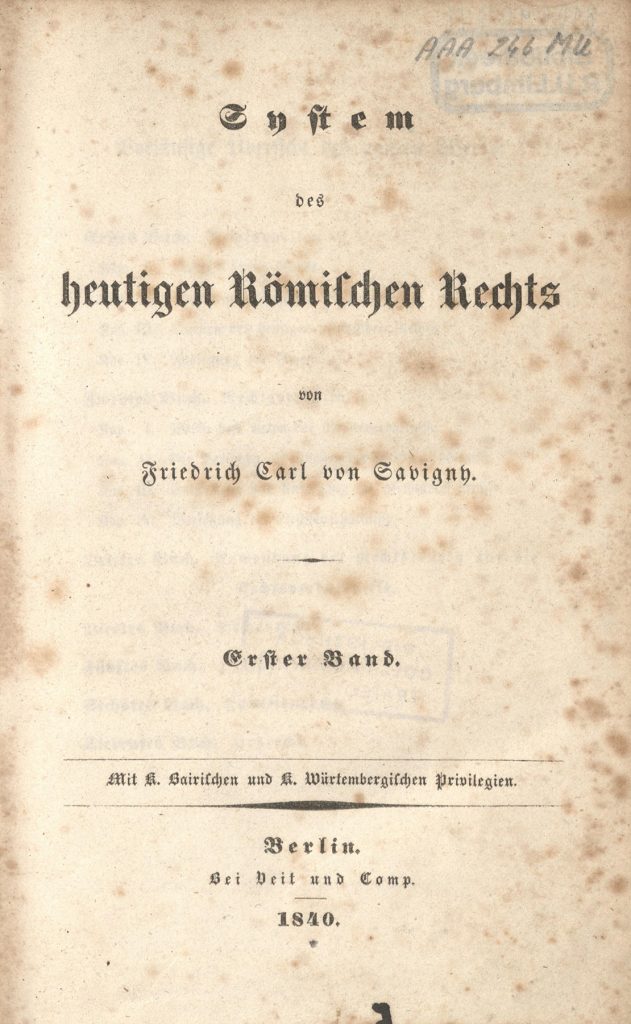Book
Grimm, J. (1854). Deutsche rechtsaltertümer (2. Ausg.). In der Dieterichschen Buchhandlung. On loan from the University Library Nijmegen. Call number: NE 432 c 269
The Grimm brothers can be placed within the Germanist branch of the Historical School of legal science. This is evident in the Deutsche Rechtsalterthümer, wherein Jacob Grimm explored the “German” customs and practices that had shaped law in that specific part of Europe. This work, originally published in 1828, dealt with ancient legal practices. It…
Read MoreSanders, D., Grimm, J., & Grimm, W. (1852). Das deutsche wörterbuch von jacob und wilhelm grimm. Hoffman und Campe. On loan from the University Library Nijmegen. Call number: 1178 c 208
Encyclopedias and dictionaries excelled in assisting the legal community in the interpretation of laws. Analytical works of this sort therefore provided a more universal approach to different areas of law. The Deutsches Wörterbuch was a magnum opus to which a group of experts devoted their efforts for over a century. The Brothers Grimm began the…
Read MoreGrimm, J. (1853). Geschichte der deutschen sprache (2nd ed.). Hirzel. On loan from the University Library Nijmegen. Call number: NE 424 c 93
Language and law evolve through time as they adapt to societal changes. There is merit in tracing the evolution of law and language together in order to fully understand their meaning and scope. Jacob Grimm probably would have subscribed to the idea that an inadequate use of language can result in a dissociation of law…
Read MorePuchta, G.F. (1853). Pandekten. (A.A.F. Rudorff, Ed.) (7. verm. Aufl.). J.A. Barth. Maastricht University Special Collections. Call number: MR EAB 119
Georg Friedrich Puchta (1798-1846) was considered a champion of Roman law, and subscribed to the ideas of Savigny and the Historical School. Puchta, unlike many of his colleagues, was also engaged in the practical side of the law, serving as a judge for many years.The Lehrbuch der Pandekten was instrumental in presenting Roman law in…
Read MoreGuttentag. (1896). Bürgerliches gesetzbuch nebst einführungsgesetz: nach den beschlüssen des reichstags in dritter beratung: text-ausgabe (Ser. Guttentagsche sammlung deutsche reichsgesetze, nr. 38/39). (1896). Guttentag. Maastricht University Special Collections. Call number: MU AAA 652
The German Civil Code (BGB) took effect in 1900. It represented the culmination of a long process of codification of private law that can be traced back to the early nineteenth century. The German Code departed from the French model by offering a different structure, and a more elaborate, scientific wording for its content. The…
Read MoreWindscheid, B. J. H. (1882). Lehrbuch des pandektenrechts (5. Aufl.). Rütten & Loenig. Maastricht University Special Collections. Call number: MU EAA 652-654
Bernard Windscheid (1817-1892) was a leading Pandectist scholar who was influential in the development of Conceptual Jurisprudence. These scholars engaged in academic exercises that aimed to extract and deduce principles of law from previous concepts. Roman law was amongst the main sources of those previous concepts, explaining the reference to the Pandekten in the title.…
Read MoreVon Savigny, F.C. von, & Heuser, O.L. (1840). System des heutigen römischen rechts. bei Veit und Comp. Maastricht University Special Collections. Call number: MU AAA 246-252
Savigny was the champion of the Historical School. He was against the quick codification of law in Germany, claiming that legal science had to develop further before codification could be achieved. In order to do this, Savigny advocated for the study of legal history in order to understand current law. This volume, as the title…
Read MoreHugo, G. (1832). Lehrbuch der geschichte des römischen rechts bis auf justinian (11, sehr veränd. Aufl). bey August Mylius. Maastricht University Special Collections. Call number: MU AAH 892
Gustav Hugo (1764-1844) was the founder of the Historical School of legal science in Germany. His early efforts took place against the backdrop of Romanticism and were later continued by, amongst others, Savigny. Members of the Historical School aimed to identify the “spirit of the people” (Volksgeist). This volume was one of the products of…
Read More






